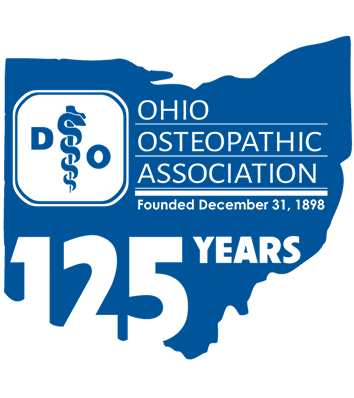Congressional Committees Approve SGR Repeal; CMS Extends Participation Fee Deadline
The U.S. House Ways & Means and Senate Finance Committees both approved legislation, Dec. 12, to permanently repeal the sustainable growth rate (SGR) formula and reform Medicare physician payment, but the full House and Senate will not act on the proposals until offsets are identified.
The American Osteopathic Association supported both committee versions, which are based on the same general framework of the “SGR Repeal and Medicare Beneficiary Access Act of 2013.” The Ways & Means Committee easily approved the legislation unanimously, with all 39 members of the Committee that were present voting in favor. The Finance Committee approved the legislation by voice vote.
Since no offsets were identified for the proposals’ $150 billion cost, the bipartisan, bicameral legislation will not go to floor votes in the House and Senate until details are worked out. In the meantime, a three-month "bridge" passed the House and Senate before session was adjourned for the Holiday Recess. This three-month stop-gap will provide physicians with a temporary 0.5 percent update to Medicare payment rates while Congress works out a deal to pass the legislation.
Unless Congress acts within the three-month period, physicians will see an approximate 24 percent reduction in their Medicare payments in 2014 with a conversion factor of $27.2006. The AOA will continue to press Congress to repeal the flawed sustainable growth rate formula, which is creating significant instability within the Medicare payment system.
Make sure your Members of Congress hear from you. Tell them to enact physician payment reform in the New Year! Send your letter today.
In late November, the Centers for Medicare and Medicaid Services (CMS) released its final rule on the 2014 Medicare Physician Fee Schedule. Due to uncertainties related to the Affordable Care Act’s Marketplace/Exchanges and payment reform, physicians will now have until January 31, 2014, to change their participation status in the Medicare Program. Participation elections and withdrawals must be post-marked on or before that date. The effective date for any participation status changes elected by providers during the extension remains January 1, 2014.
Among the provisions in the final rule:
- For CY 2015, CMS will establish separate payment under the Physician Fee Schedule for chronic care management services furnished to patients with multiple chronic conditions that are expected to last at least 12 months or until the death of the patient. Overall, the scope of services includes: (1) 24/7 access to address patient’s acute care needs; (2) Continuity of care with designated practitioner or member of team; (3) Care management of conditions including systematic assessment of medical, functional and psychosocial needs; (4) Management of care transitions; (5) Coordination with home and community-based clinical service providers; and (6) Enhanced communication – not only by phone, but secured messaging, Internet, or other non-face to face methods.
- CMS will consider codes identified by Medicare Contractor Medical Directors as part of its potentially misvalued code initiative. CMS also will continue to accept public nominations of potentially misvalued codes. The AOA urged CMS to provide full disclosure and transparency in the effort to identify potentially misvalued codes.
- CMS did not finalize its proposal to limit payments for certain services provided in physician offices so that those payments would not exceed Medicare payment for the same service provided in a facility setting. The agency chose not to finalize its proposal due to the overwhelming opposition by stakeholders, including the AOA. CMS may address this issue in a future proposed rule.
- CMS expanded its telehealth footprint by modifying its definition of urban/rural as it relates to Health Professional Shortage areas. CMS also added transitional care management services (99495 and 99496) for telehealth coverage. The AOA supported the agency’s proposals.



